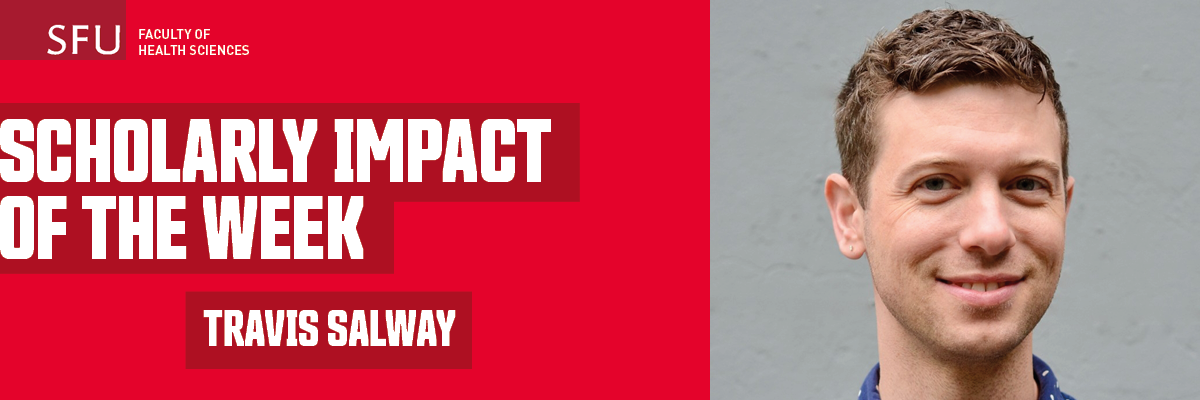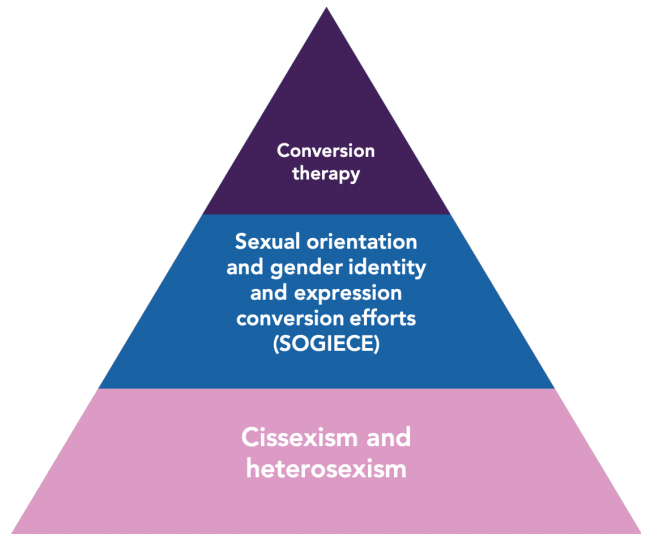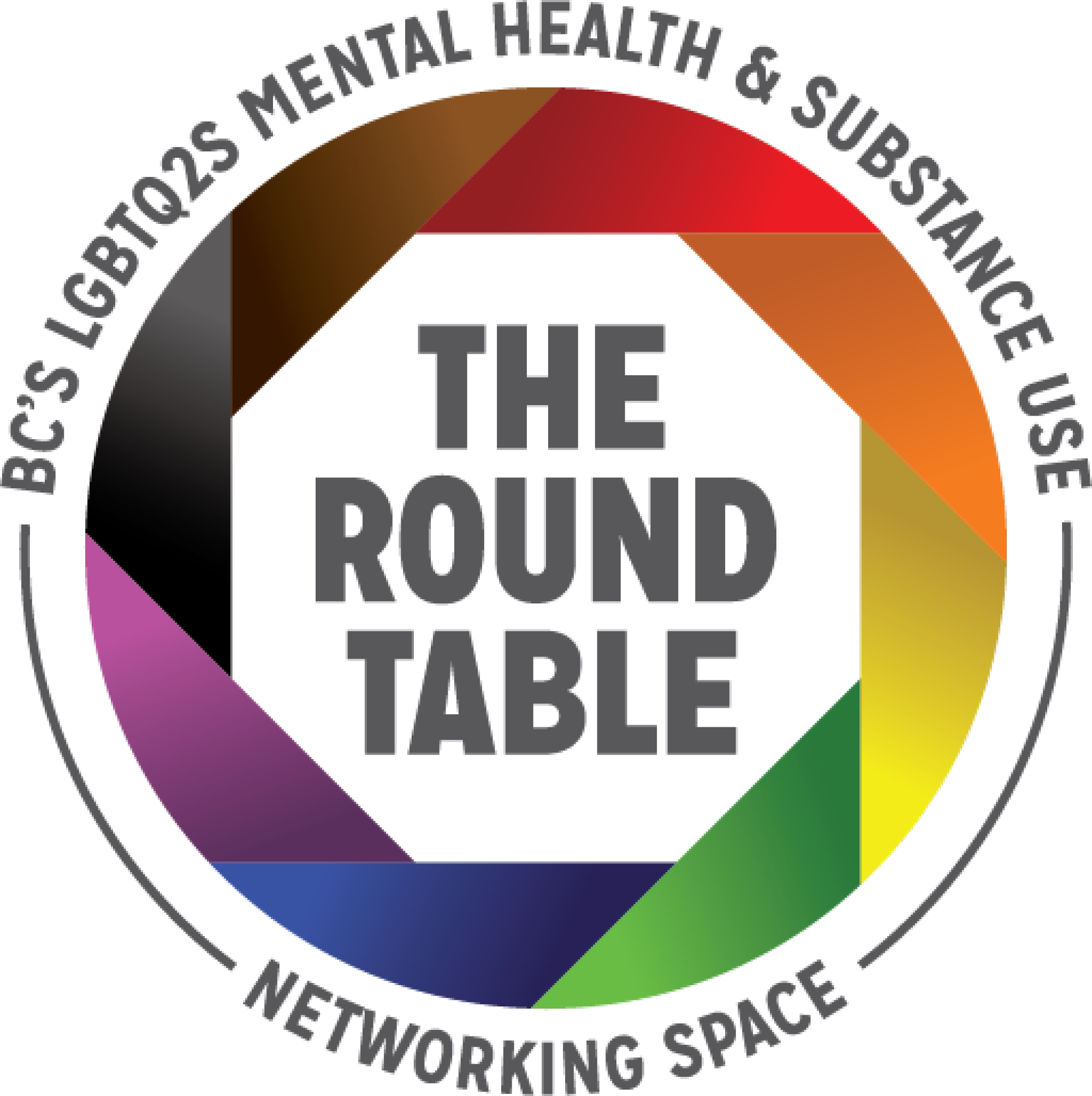
by Heather Sanders
Warning: Content may be upsetting for survivors of ‘conversion therapy’ or other harmful practices that stigmatize 2S/LGBTQ+ people. If you need support please reach out to: mindmapbc.ca or call 833-456-4566
In 2019, the Parliament of Canada decided to review the state of health equity for Two-Spirit, lesbian, gay, bisexual, trans, and other queer (2S/LGBTQ+) Canadians. They wanted to understand why, despite decades of incremental legal protections and improved social attitudes in Canada, 2S/LGBTQ+ people continued to face a substantially higher burden of poor health outcomes than their heterosexual and cisgender counterparts. SFU epidemiologist and health science professor Travis Salway was invited to Ottawa along with other academics, health care experts and members of the 2SLGBTQ+ community to address the House of Commons Standing Committee on Health.
Their visit coincided with the federal government decision on whether Canada needed to pursue a ban on so-called ‘conversion therapy’ treatment. The federal government suggested a nationwide law criminalizing these practices was unnecessary, since governance of healthcare is under the jurisdiction of provinces and territories.
Professor Salway and other researchers and advocates responded by challenging this decision. They argued that over the past ten years ‘conversion therapy’ – and other sexual orientation, gender identity, and expression change efforts (SOGIECE) had become even more insidious in Canada, resulting in a devastating impact on health outcomes. Salway and his research group set about compiling the evidence needed to inform Canadian policymakers about the prevalence of SOGIECE and the harm it was causing survivors.
He and his team have since published several quantitative and qualitative research studies including Experiences with sexual orientation and gender identity conversion therapy practices among sexual minority men in Canada, 2019-2020; "Conversion Therapy" Experiences in Their Social Contexts: A Qualitative Study of Sexual Orientation and Gender Identity and Expression Change Efforts in Canada and most recently, “They Want You to Kill Your Inner Queer but Somehow Leave the Human Alive": Delineating the Impacts of Sexual Orientation and Gender Identity and Expression Change Efforts.
As a result of this research, ongoing advocacy, and many witness testimonies, Bill C-6: An Act to amend the Criminal Code (conversion therapy) was introduced in October 2020. The Bill has since been on a “roller-coaster” ride through a pandemic and a federal election, which means it will now have to be re-introduced. “Bill C-6 has really helped bring attention to the pervasiveness of SOGIECE in Canada,” says Salway, “however, it has been quite painful and difficult for the survivors.”
What is conversion therapy?
Salway explains that the term ‘conversion therapy’ dates back to a time when institutions – the state, the church, and the healthcare system – referred to homosexuality and non-gender conformity as a ‘crime’ or an ‘illness’ that could be ‘treated.’ “For most of the 20th century, the state referred to homosexuality as a crime; the church called it a sin; and health professionals called it an illness,” says Salway. “People denied or hid their sexual identity, went to extremes such as shock therapy, and unfortunately a good number died by suicide rather than be ostracized or be denied living as their true selves.”
Today ‘conversion therapy’ refers to the controversial and widely discredited approach of counselling someone who is gay into being straight. It includes but is not limited to talk therapy, religious rituals, medication or a combination of these, and is just one part of the collection of practices that are harmful to the health and well-being of 2S/LGBTQ+ people. Salway argues that legislation to ban just ‘conversion therapy’ overlooks less well-defined efforts that seek to deny or suppress non-heterosexual sexual orientations and non-cisgender gender identities or expressions. He recommends a combination of legislation, policy, and education are needed that target the many places where SOGIECE occurs, including within religious and healthcare settings.
“The Bill as it was introduced uses a very narrow definition of conversion therapy, which corresponds to about 50 per cent of conversion therapy practices found in our surveys.” says Salway, “While the bill defines conversion therapy as efforts to convert people’s sexual orientation or gender identity, we found that practitioners will deny this is the goal. We think a much better definition is the sustained effort to deny or discourage a non-heterosexual sexual orientation or transgender identity.”

The research: “They want to kill your inner queer”
Salway worked with collaborators at the Community-Based Research Centre to survey more than 9200 individuals over the age of 15 that identified as a 2S/LGBTQ+ man. They found that approximately one in five have experienced some form of SOGIECE. One in ten had experienced conversion therapy practices (CTP). The study defined CTP as “attempts to change sexual orientation or gender identity [including] organized activities (such as counseling or faith-based rituals) that are sometimes referred to as ‘conversion therapy.’” This is the first study in Canada to describe detailed characteristics of CTP in such a large sample.
Most importantly, Salway and his research team found that there is not just a single setting where CTP occurs. Rather, these practices occurred in licensed and unlicensed healthcare offices, camps, schools and organized religious settings, as well as in individual consultations with religious leaders and other religious individuals.
Further research involved speaking with individuals who has experienced CTP and gathering stories about its impact on their well-being. Survivors of CTP had experienced profound harms, reported feelings of being broken, and feeling as though there was something wrong with them.
Especially devastating were the harms done as survivors were becoming young adults, exploring their identities and finding their place in the world. CTP had negatively affected their formative years as adolescents, impacting their ability to develop intimacy and trust, understand and explore their sexuality, and build confidence and identity. “I’m just thinking of … the years I just spent in fear and not pursuing relationships,” shared one survivor. “I felt like I was standing at a door … there was this party going on … and I’m just standing there at this door looking in and terrified to enter.”
The research found CTP was also devastating for trans people who were denied gender affirming care. “This is honestly one of the hardest parts of the aftermath of the conversion therapy to deal with,” said one survivor. “I think of my body as a prison, because it was the conversion therapist’s deliberate inaction that forced me into a body that doesn’t fit me and that I’m going to be stuck in for the rest of my life.”
Those who experienced CTP reported feeling self-hatred, poor self-esteem, anxiety, depression, problematic substance use and suicidality before, during and after their involvement. They described feelings of social isolation, hopelessness, and despair related to their experiences. According to research led by Salway’s team, approximately one in three of those who experienced CTP has attempted suicide. Unfortunately, the scope and severity CTP has been invisible to many Canadians - including in public health - in part because of the shame many survivors experience, making it difficult for them to speak up.
“A ban on conversion therapy is a decent first step,” says Salway. “It confirms that these practices are not compatible with Canadian values. For some communities however, I think we need more education around what constitutes a healthy and happy life – and not just in a cisgender and heterosexual context. Just as we have acknowledged other injustices and worked towards equality in other areas, we have to imagine a society that welcomes and celebrates 2SLGBTQ+ individuals as they are. And that’s going to take all of us.”
Building a community of care
Professor Salway continues to work in partnership with community organizations, healthcare providers, researchers and others to build networks and resources that offer support for 2S/LGBTQ+ individuals. He is one of the founders of The Roundtable, B.C.’s 2S/LGBTQ+ Mental Health & Substance Use Networking Space, which aims to bring people together to exchange ideas, raise awareness and find intersections of collaboration.

The Roundtable and community partners have established MindMapBC, a resource that lists outpatient mental health services in the Greater Vancouver area that are free, low cost, accessible without a doctor’s referral and with an explicit focus on 2SLGBTQ+ affirming care. The resource was developed to acknowledge the particular barriers that 2SLGBTQ+ people face in finding mental health services that are supportive of their sexual orientations and gender identities, while sensitive to barriers such as cost, accessibility and embarrassment or shame.
As the federal government reconvenes this fall, Professor Salway and many others will be watching and waiting to see what happens with the debate around ‘conversion therapy,’ which has to now start over at the beginning of the legislative process. A first step, he says, is to redefine the terms.
“With regards to the conversation around conversion therapy, we already know that we cannot change or convert a person’s intrinsic sexual orientation or gender. And we know the attempts to do so are not therapeutic and are, in fact, harmful,” he stresses.
Legislative bans must adjust their definitions to clearly state that the defining feature of conversion therapy and similar practices is avoiding acceptance and acknowledgement of 2S/LGBTQ+ lives as compatible with being healthy and happy.
This healthy sense of self is something that all Canadians deserve, regardless of sexual orientation, gender identity or gender expression. And that sense of self is what is fundamentally at stake in the debates over conversion therapy.”

SFU's Scholarly Impact of the Week series does not reflect the opinions or viewpoints of the university, but those of the scholars. The timing of articles in the series is chosen weeks or months in advance, based on a published set of criteria. Any correspondence with university or world events at the time of publication is purely coincidental.
For more information, please see SFU's Code of Faculty Ethics and Responsibilities and the statement on academic freedom.